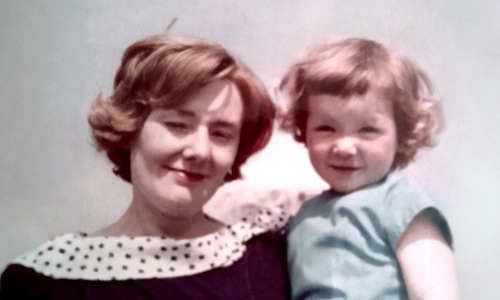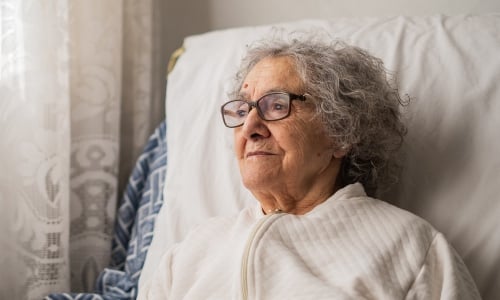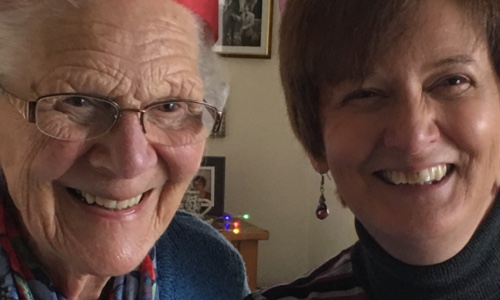This week would have been my mum’s 70th birthday. She died in 2013, so there are no planned Zoom celebrations. Instead, I’ll phone my sister, we’ll raise a glass of wine to her memory and chat about how she would have managed a whole year of lockdown and discuss her grandchildren, who are growing up fast, not knowing their granny.
The pandemic has resulted in a terrible wave of deaths. Many people have died lonely, traumatic deaths separated from loved ones. Seven years on, I can now appreciate the calm, quiet, intimate circumstances of her death.
Grief is an incredibly personal experience. For me, grief was a sad ache and longing for some more time with my mum, accompanied and complicated by my own guilt at not having been around more for her last months, and anger at the smoking habit that presumably prompted the lung cancer that killed her.
Ways of coping
The individual things that helped me manage my loss are very personal - long walks in nature, listening to memorable music, and reading about other people’s experiences towards death and dying helped me work out my own feelings.
Death affects us all, but for some it’s not something they experience until later in life and they might not necessarily know how to react when someone close to them loses someone they love. I was surprised how much some people struggled to know what to say to me after my mum died, with some friends not able to acknowledge her death for fear of upsetting me.
Grief, this personal and private emotion, has been made even more isolating and difficult by the pandemic. Bereavement during COVID has been a frightening and lonely experience for many people as the risk of infection has meant we have had to social distance and keep apart from those that we love. Making it more important than ever to support those dealing with the death of someone close to them.
As this is such a personal time, I wouldn’t presume to advise other people how to manage their own grief.
However, this period of reflection has allowed time to look back on the things those around me did that really helped me feel supported at such a difficult time:
1. Talk about the person who has died
Deep grief can feel like a bad dream - sad, frightening and somehow unreal. It can be a subject people avoid entirely. But when people told me how sorry they were that my mum had died and said her name, each of those offers of condolence genuinely provided me with a tiny but real bit of comfort and added up across all my friends and colleagues provided a meaningful offer of care and support. And when people shared their own memories of my mum it often made me cry but it also made me happy that other people would remember her.
2. Let the person know you’re there
People who have been bowled over by grief aren’t very good at making decisions. One of the very best reactions to my mum’s death for my grieving stepfather was from two of his local friends who set up a ‘Thursday evening supper club’ and each Thursday they would take turns to host supper. It was a fixed arrangement, so my stepfather didn’t have to decide each week if he felt like meeting up, he just went every week even when he didn’t feel like it. And he almost always felt better when he went. Make plans, suggest things and let the person know they’re not alone.
3. Keep in touch
After my mum died, I was lucky enough to be supported by my husband and a close group of friends and I had a job and a toddler to focus on. My stepfather was retired with little structure or fixed activity to his day. The one thing I could do to support him each day was to give him a call. I phoned him every evening to say hello and see how he was. I know some days I was the only person he spoke to that day, our chats rarely lasted more than ten minutes but it helped him through those first few years as he built up a new life and learnt how to live without my mum.
Time really is the big healer. For the first few years after my mum’s death, I deliberately avoided hearing The Archers theme music and would leap to turn off the radio to avoid it but now, 7 years on, I’ve realised hearing the familiar tune makes me smile to remember her rather than making me feel sad.






